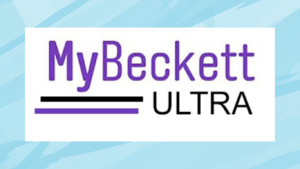Have you ever stared at a bowl of muesli, spoon in hand, and wondered: Is muesli a fruit or a nut? This question might seem simple, but it opens the door to a fascinating world of flavors, nutrition, and culinary history. Muesli, with its colorful mix of grains, fruits, nuts, and seeds, is neither just a fruit nor a nut—it’s a delightful medley that defies such narrow labels. In this comprehensive guide, we’ll dive deep into what muesli really is, explore its ingredients, uncover its health benefits, and share creative ways to enjoy it. Whether you’re a breakfast enthusiast or a curious foodie, prepare to be amazed by the sensational story of muesli!
What Is Muesli? A Breakfast Sensation Defined
Muesli is a versatile breakfast dish that originated in Switzerland, known for its wholesome blend of raw or lightly toasted grains, dried fruits, nuts, and seeds. Unlike granola, which is often baked with sweeteners and oils, muesli is typically raw or minimally processed, offering a natural, nutrient-packed start to your day. The beauty of muesli lies in its simplicity and flexibility—you can customize it to suit your taste, dietary needs, or pantry staples. But to answer the burning question: muesli is not a fruit or a nut. It’s a composite food that incorporates both, along with grains and sometimes other ingredients like spices or sweeteners. Think of it as a symphony of textures and flavors, each component playing a vital role in the overall experience.
The History of Muesli: A Swiss Health Revolution
Muesli’s story begins in the early 20th century with Dr. Maximilian Bircher-Benner, a Swiss physician who championed nutrition as a path to wellness. Dr. Bircher-Benner created muesli as a health food for his patients, blending oats, apples, nuts, and yogurt to create a nourishing, easily digestible meal. His original recipe, known as Birchermuesli, was soaked overnight to enhance its nutritional value and flavor. This revolutionary dish quickly gained popularity, spreading across Europe and eventually the world. Today, muesli is a global breakfast staple, celebrated for its health benefits and adaptability. Its roots in Swiss wellness culture underscore its reputation as a food that nourishes both body and soul.
Breaking Down Muesli’s Ingredients: Fruits, Nuts, and More
To understand why muesli isn’t just a fruit or a nut, let’s dissect its core components. Each ingredient contributes to muesli’s unique texture, flavor, and nutritional profile, making it a balanced and satisfying meal.
Grains: The Foundation of Muesli
Grains form the backbone of muesli, providing complex carbohydrates for sustained energy. Rolled oats are the most common choice, prized for their hearty texture and ability to absorb flavors when soaked. Other grains like barley, quinoa, rye, or wheat flakes can also be used, adding variety and nutritional diversity. These grains are typically raw or lightly toasted, preserving their natural goodness.
Dried Fruits: A Burst of Sweetness
Dried fruits are a key player in muesli, adding natural sweetness and chewy texture. Common choices include raisins, cranberries, apricots, dates, figs, and apple pieces. These fruits not only enhance flavor but also provide essential vitamins, minerals, and fiber. The presence of fruit in muesli is likely why some might wonder if it’s primarily a fruit-based food, but it’s just one part of the equation.
Nuts: Crunchy and Nutrient-Rich
Nuts bring a satisfying crunch and healthy fats to muesli. Almonds, walnuts, hazelnuts, pecans, and cashews are popular options, each contributing unique flavors and nutritional benefits. Nuts are rich in protein, fiber, and essential fatty acids, making them a powerhouse ingredient. Their prominence in muesli might lead some to think it’s a nut-based food, but like fruit, nuts are just one component.
Seeds: Tiny but Mighty
Seeds like chia, flax, pumpkin, or sunflower seeds are often sprinkled into muesli for added texture and nutrition. These tiny powerhouses are packed with omega-3 fatty acids, fiber, and antioxidants, enhancing muesli’s health credentials. Seeds add a subtle crunch that complements the softer grains and fruits.
Optional Add-Ins: Spices, Sweeteners, and More
Some muesli recipes include extras like cinnamon, nutmeg, or vanilla for warmth and depth. Sweeteners like honey or maple syrup may be added for a touch of indulgence, though traditional muesli relies on the natural sweetness of fruit. Yogurt, milk, or plant-based alternatives are often used to soften the grains and create a creamy texture.
Muesli vs. Granola: Clearing Up the Confusion
One reason people might question whether muesli is a fruit or nut is its similarity to granola, another popular breakfast mix. While both contain grains, fruits, and nuts, there are key differences. Granola is typically baked with oil and sweeteners, resulting in a sweeter, crunchier texture. Muesli, on the other hand, is usually raw or lightly toasted, with a focus on natural ingredients and minimal processing. Granola’s sweeter profile might make it seem more dessert-like, while muesli’s wholesome simplicity appeals to health-conscious eaters. Understanding these distinctions helps clarify that muesli is a unique blend, not just a fruit or nut concoction.
Health Benefits of Muesli: A Nutritional Powerhouse
Muesli’s combination of grains, fruits, nuts, and seeds makes it a nutritional superstar. Here are some of the sensational health benefits that make muesli a go-to choice for breakfast lovers.
Rich in Fiber for Digestive Health
The grains and dried fruits in muesli are excellent sources of dietary fiber, which supports healthy digestion and helps regulate blood sugar levels. Fiber also promotes a feeling of fullness, making muesli a satisfying meal that can aid in weight management.
Heart-Healthy Fats from Nuts and Seeds
Nuts and seeds provide monounsaturated and polyunsaturated fats, which are known to support heart health by reducing bad cholesterol levels. These fats also contribute to brain health and overall well-being.
Packed with Vitamins and Minerals
Dried fruits like raisins and apricots supply vitamins A, C, and K, as well as minerals like potassium and iron. Nuts and seeds add magnesium, zinc, and vitamin E, supporting everything from immune function to bone health.
Sustained Energy from Complex Carbs
The complex carbohydrates in muesli’s grains provide a steady release of energy, keeping you fueled throughout the morning. This makes muesli an ideal choice for busy days or active lifestyles.
Antioxidant Boost for Overall Wellness
Fruits, nuts, and seeds are rich in antioxidants, which combat oxidative stress and inflammation in the body. Regular consumption of muesli may contribute to long-term health and vitality.
Is Muesli Good for Everyone? Dietary Considerations
While muesli is a nutritious choice for most people, certain dietary considerations should be kept in mind. For those with gluten sensitivities, opt for gluten-free grains like quinoa or certified gluten-free oats. Nut allergies may require omitting nuts and focusing on seeds or fruit-heavy blends. If you’re watching your sugar intake, choose unsweetened muesli and limit high-sugar dried fruits like sweetened cranberries. Muesli’s versatility makes it easy to tailor to specific dietary needs, ensuring everyone can enjoy its benefits.
How to Enjoy Muesli: Creative Serving Ideas
Muesli’s adaptability is one of its greatest strengths. Here are some sensational ways to enjoy this wholesome dish, whether you prefer it for breakfast, a snack, or even dessert.
Classic Soaked Muesli
Soak muesli in milk, yogurt, or a plant-based alternative overnight for a creamy, porridge-like texture. Top with fresh fruit like berries or banana slices for a burst of flavor.
Hot Muesli for Chilly Mornings
Cook muesli with milk or water on the stovetop for a warm, comforting breakfast. Add a dash of cinnamon and a drizzle of honey for extra coziness.
Muesli Smoothie Bowl
Blend muesli into a smoothie with spinach, banana, and almond milk, then sprinkle extra muesli on top for crunch. This nutrient-packed bowl is perfect for a vibrant start to the day.
Muesli Energy Bars
Mix muesli with nut butter, honey, and a touch of melted coconut oil, then press into a pan and chill. Cut into bars for a portable, healthy snack.
Muesli Parfait
Layer muesli with Greek yogurt and fresh fruit in a glass for a stunning parfait that’s as delicious as it is beautiful. This makes a great brunch option or light dessert.
Making Your Own Muesli: A DIY Adventure
Creating your own muesli is a fun and rewarding way to customize flavors and control ingredients. Start with a base of rolled oats or your favorite grains, then add a mix of dried fruits, nuts, and seeds. Aim for a balance of textures—chewy fruits, crunchy nuts, and hearty grains. Store your homemade muesli in an airtight container for up to a month. Experiment with add-ins like coconut flakes, cacao nibs, or dried spices to make it uniquely yours. Homemade muesli is not only cost-effective but also allows you to cater to your taste and dietary preferences.
Common Myths About Muesli: Debunked
Despite its popularity, muesli is surrounded by a few misconceptions. Let’s set the record straight.
Myth: Muesli Is Just a Fruit or Nut Mix
As we’ve established, muesli is a balanced blend of grains, fruits, nuts, and seeds, not just one or the other. Its diversity is what makes it so special.
Myth: Muesli Is Always Healthy
While muesli can be incredibly nutritious, some commercial brands add sugars or unhealthy fats. Always check labels or make your own to ensure quality.
Myth: Muesli Is Only for Breakfast
Muesli’s versatility makes it suitable for snacks, desserts, or even baking. Don’t limit it to the morning meal!
Muesli Around the World: Global Variations
Muesli has evolved beyond its Swiss origins, with unique variations across the globe. In Germany, muesli is often served with fresh fruit and quark, a creamy cheese and in Australia, tropical fruits like mango and passionfruit are popular additions. In the United States, muesli might include superfoods like goji berries or hemp seeds. These global twists highlight muesli’s universal appeal and its ability to adapt to local tastes and ingredients.
Why Muesli Is a Sustainable Choice
Muesli isn’t just good for you—it’s good for the planet. Many of its ingredients, like oats and dried fruits, have a relatively low environmental footprint compared to processed foods. Choosing organic or locally sourced ingredients can further reduce your impact. Plus, making muesli at home minimizes packaging waste, making it an eco-friendly option for conscious eaters.
Conclusion: Muesli—A Fruit, a Nut, or So Much More?
So, is muesli a fruit or a nut? The answer is neither—and both! Muesli is a glorious fusion of grains, fruits, nuts, and seeds, crafted to deliver flavor, nutrition, and versatility. From its humble beginnings in a Swiss clinic to its status as a global breakfast icon, muesli has captured hearts and taste buds with its wholesome charm. Whether you enjoy it soaked, hot, or as a creative snack, muesli invites you to explore endless possibilities. So grab a bowl, mix up your favorite blend, and savor the sensational experience that is muesli. What’s your favorite way to enjoy this delightful dish? Share your ideas in the comments below!




